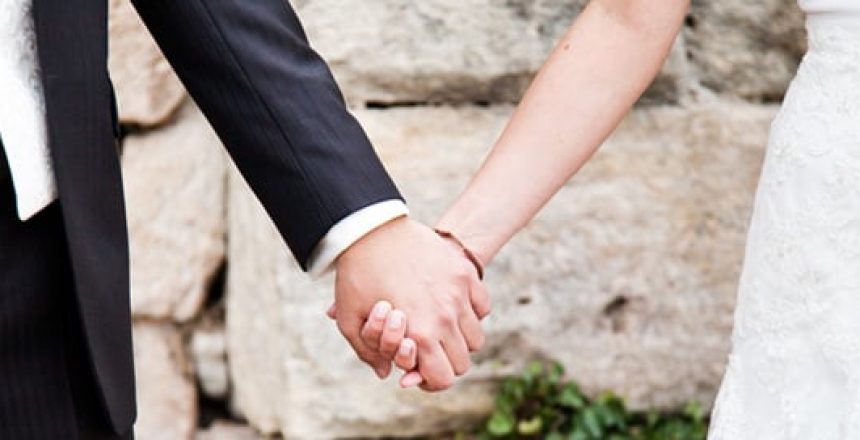“Marriage value, which is only applicable to leases with less than 80 years remaining, is 50% of the increase in a residential property’s value once the lease on that property has been extended. So, if the value of a property would go up by £20,000 as a result of a lease extension, the leaseholder of that property would be required to pay a premium of £10,000 to the freeholder, on top of the lease extension cost.” Adam Lowe, freehold industry expert and Senior Valuer at Freehold Sale
Adam, with his extensive knowledge in the freehold industry, offers the simplest answer to the question, “What is marriage value”. However, it gets considerably more complicated when looking at how to calculate marriage value. We’ll delve into this topic a bit later but first; let’s explore where marriage value comes from and why it exists.
The freehold and leasehold world is fraught with rules and regulations, which most of us have no concept of whatsoever. They’re in place to protect both leaseholders and freeholders and to ensure that their rights are upheld. However, there’s been much debate about whether some of these laws fulfil their purpose.
An example with particular significance here, is the current way in which lease extension premiums are calculated. This hit the spotlight as a result of the ground rent scandal and led to an investigation by the Law Commission. The result was the proposal of several options to reduce the premiums payable to extend a lease and to make the process easier and fairer for leaseholders. The government is currently reviewing this report and we anticipate some changes to the calculation process and leasehold law to be made imminently.
The majority of rules and regulations surrounding the freehold and leasehold industries are dictated by Landlord and Tenant Laws, derived from acts of parliament. Marriage value falls under Schedule 13, Part II of the Leasehold Reform, Housing and Urban Development Act 1993 (as amended). Specifically, this law determines the premium payable in respect of granting a new lease i.e. extending the number of years on a lease.
What is marriage value in relation to a lease extension?
When a residential lease term falls below 80 years, it becomes subject to marriage value. As discussed above, marriage value is a premium payable to the freeholder in addition to the premium payable to extend a lease. Therefore, marriage value will be applicable to any leaseholder wishing to extend their lease when it has a remaining lease term of less than 80 years.
Why do we have to pay marriage value?
When a residential lease is extended, it will add value to the property because it provides greater security for the leaseholder, mortgage lenders and potential buyers. If the remaining term of that lease had dropped to below 80 years, this increase in value can be substantial. And under Schedule 13 Part II, Freeholders are entitled to 50% of this increase in potential profit.
The understanding for this entitlement is that the increase in potential profit only arises as a result of the freeholder granting the new lease. And while the leaseholder could potentially benefit from this profit, the value of the freeholder’s interest will be reduced. Therefore, the legislation requires that the profit be shared equally between both parties via the marriage value premium as compensation for the freeholder.
How do you calculate marriage value?
There are many factors involved in calculating marriage value. These include the length of the lease at the point of renewal, the current property value, the expected property value with the new lease, and the ground rent income from the lease. Thus, there is no real rule of thumb for calculating marriage value.
According to Schedule 13, Part II, the calculation of marriage value is the difference between two aggregate amounts:
- The value of the leaseholder’s interest under the present lease, PLUS the value of the landlord’s interest prior to the grant of the new lease, PLUS the value of any immediate interests.
- The value of the leaseholder’s interest with the new lease, PLUS the value of the landlord’s interest once the new lease is granted, PLUS the value of any immediate interests (if remaining).
Calculating marriage value is undeniably complex and therefore best left to professionals who can ensure that an accurate figure is reached. But what we can see for certain is that the cost for extending a lease differs depending on the existing lease length and the property value.
For example, it might cost £5,000 to extend a 95-year lease but could cost £15,000 to extend a 60-year lease for a property value of £150,000. A property worth £400,000 with a 60-year lease on the other hand, could cost as much as £40,000 to extend the lease. Of course, this is entirely dependent on the factors listed above.
Ultimately, obtaining a professional valuation is the safest and most accurate way to determine the lease extension premium together with the additional marriage value premium. However, in the meantime, you can get a quick estimation of the cost to extend a lease including marriage value using our free, Lease Extension Calculator.
Can you avoid paying marriage value?
Yes, leaseholders can avoid paying marriage value if they extend their lease before the remaining lease term drops to below 80 years. It is important to note that the cost to extend a lease and additional marriage value will continue to rise every year once the lease term drops below 80 years.
Furthermore, a short lease term can make selling the property much more difficult as mortgage lenders do not like to lend on shorter leases, even those with 80 years remaining, despite only having 99 years when new. However, it is possible that a cash buyer will purchase the property at a reduced price, factoring in the cost of the lease extension.
Final thoughts
Leaseholders should keep an eye on the remaining term of their lease to ensure that they do not let it slip below 80 years before extending. This will avoid a hefty premium for a lease extension and additional marriage value. Leases that have more than 80 years remaining will not be subject to marriage value, so it’s well worth taking advantage of. Furthermore, maintaining a long lease term on a residential property helps to ensure that the property’s full value is retained.
Learn more about lease extensions in the ‘Lease Extension Guide’
This resource was originally published on 5th June 2015 and updated on 8th September 2020


